Hi, everyone! I’ve missed you. I’m back, baby. I want to thank you for sticking with me during the recent episode drought. I have some exciting topics coming up, starting with a new show this weekend.
I’ll give you a hint: You’ll want to get “a head” listening to it when it comes out.
Alright, let’s get to why you opened this email: this week’s top moments in baseball history. There’s a lot of career highlights for Hall of Famers, with recurring appearances from the Philadelphia Phillies across the decades.
Enjoy!
May 6, 1915: The Babe Hits His First Home Run
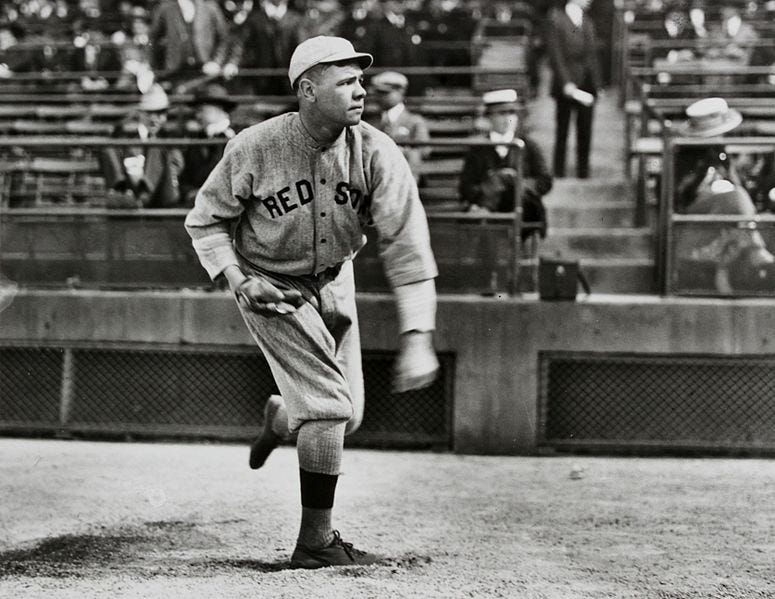
Babe Ruth, then a pitcher for the Boston Red Sox, hit his first major-league home run. This game was against his future team, the New York Yankees, and was held at the Polo Grounds.
Ruth, who was only making his third pitching start (and fourth appearance) of the season for the Red Sox, impressed the onlookers as a hitter of the first rank. In the third inning, Ruth swatted a low ball into the upper tier of the right-field grandstand. This was his first home run in his 18th time at bat.
The game was a tough one, with the teams fighting "tooth and nail for thirteen innings." Despite the Red Sox leading twice during the game, they eventually lost due to critical errors. However, this game marked the beginning of Ruth's illustrious home run-hitting career.
He would go on to hit a staggering total of 714 major league home runs in his career.
May 7, 1960: Brothers Combine Efforts for an Extra-Inning Victory
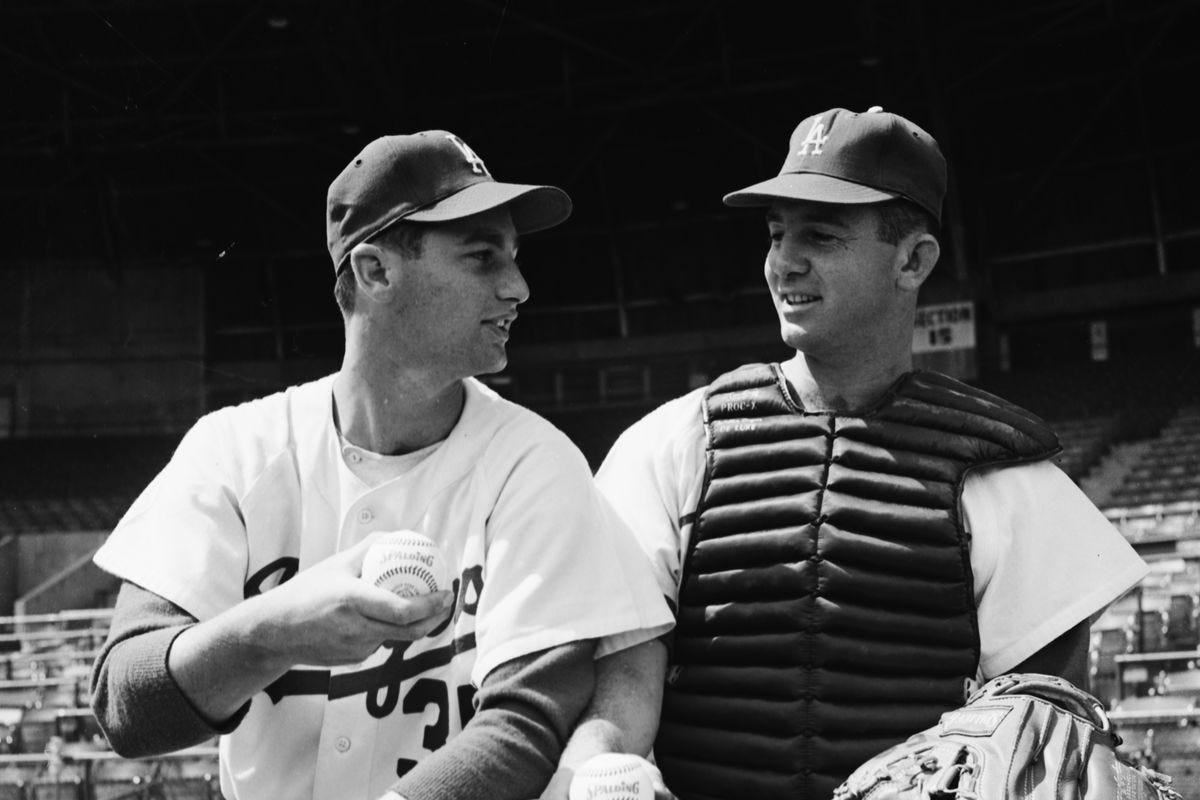
A regular season game between the LA Dodgers and Philadelphia Phillies went into extra innings on this day. Why is this night so special? Norm Sherry, a replacement catcher for Los Angeles, and his brother Larry Sherry, a relief pitcher, combined their efforts to secure a victory.
The game was a nail-biter going into the 11th inning. That’s when Norm Sherry stepped up to the plate. After two of his teammates popped out, Norm battled against the Phillies' pitcher, fouling off a few breaking balls.
With the count at 3-1, he launched a high drive far over the 42-foot-high screen for a walk-off home run. This bomb not only won the game for the Dodgers but also gave his brother Larry the win, who had come in previously and held off the heart of Philadelphia’s order in the top of the 11th.
Thanks to the Sherry brothers ' combined efforts, the final score was 3-2 in favor of the Dodgers.
May 8, 1984: Kirby Puckett Has a Monster First Career Game
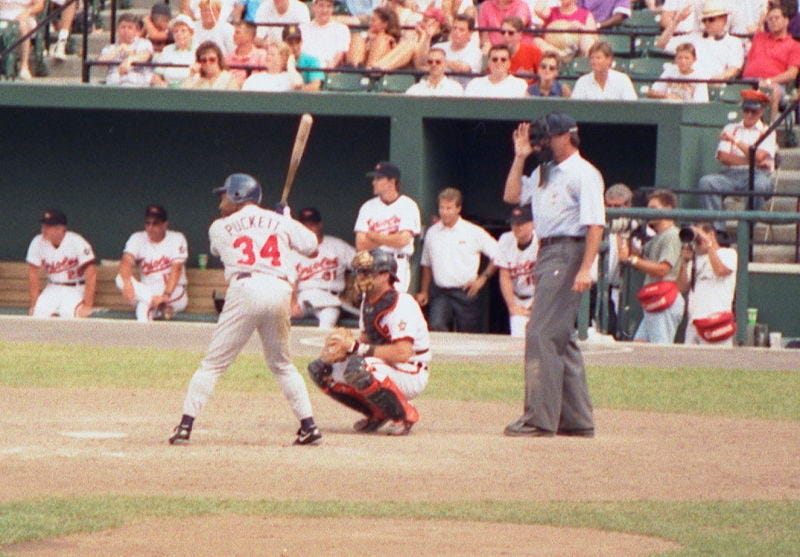
Kirby Puckett, a promising player for the Minnesota Twins, made his Major League debut in a game against the California Angels on this date. He delivered an exceptional performance in his first appearance that hinted at the remarkable career to follow.
Puckett had a dream start, hitting four singles in his first game. His performance was instrumental in the Twins' 5-0 victory over the Angels.
He went on to play in 128 games that season and maintained a steady .296 batting average. He racked up 165 hits, scored 63 runs, and stole 14 bases. His outstanding performance throughout the season earned him a place among the top contenders for the AL Rookie of the Year award, where he finished third.
Puckett's debut marked the beginning of a stellar career. He went on to win his first AL batting title in 1989 with a .339 average. His career stats include a .318 average, 207 home runs, and 1085 RBIs.
Puckett's contributions to the game were recognized when he was inducted into the Baseball Hall of Fame in 2001.
May 9, 1987: Steady Eddie Goes Yard From Both Sides of the Plate
Eddie Murray, affectionately known as "Steady Eddie" achieved a feat that had never been done before on this day: he homered from both sides of the plate for the second consecutive game.
Over two days in a series against the White Sox, he hit four home runs, two from each side of the plate. His exceptional display of power and skill played a crucial role in the Baltimore Orioles' victories, with final scores of 7-6 and 15-6.
This achievement was not an isolated incident in Murray's career. Known for his switch-hitting prowess, Murray homered from both sides of the plate in the same game a record 11 times over his 21-year career. He was a consistent performer, hitting at least 20 homers 17 times in his first 20 seasons.
Murray's career stats are impressive. He maintained a lifetime .399 batting average in bases-loaded situations. He led the league in home runs and RBIs in the strike-shortened 1981 season. His contributions to the game were recognized when he was inducted into the Baseball Hall of Fame in 2003.
May 10, 1967: Hank Aaron Hits His Only Inside-the-Park HR
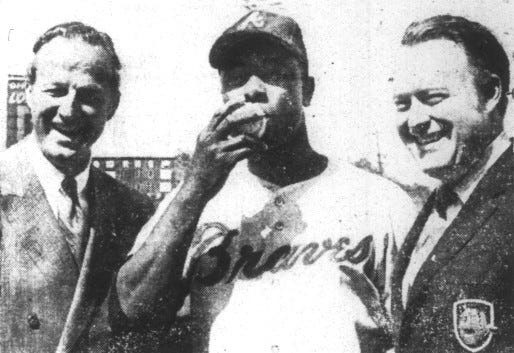
One of the greatest hitters in baseball history, Hank achieved a unique feat 57 years ago today. In the eighth inning of a game against the Philadelphia Phillies, Aaron hit a ball to deep center field and scored ahead of the relay.
This was not just any home run; it was an inside-the-park home run.
What makes this event particularly noteworthy is that this was the only inside-the-park home run among Aaron's career total of 755 home runs. Despite his tremendous power and spectacular speed, Aaron only hit one of these types of round-trippers.
The pitcher against whom Aaron achieved this feat was Jim Bunning, a Hall of Fame pitcher known for his competitiveness.
In the 1967 season, Aaron led the National League in runs (113) and total bases (344), earning a fifth-place finish in the NL Most Valuable Player Award voting. His career stats include a .305 batting average, 755 home runs, and 2,297 RBIs.
Aaron's contributions to the game were recognized when he was inducted into the Baseball Hall of Fame in 1982.
May 11, 1990: An Angels’ Top Star Refuses to Show Up to Spring Training
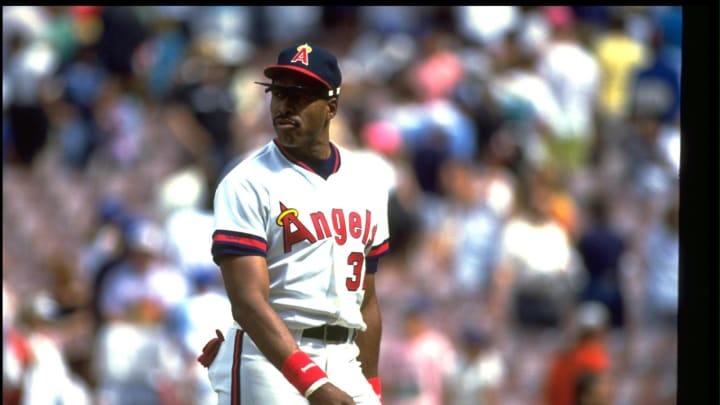
Dave Winfield, a star outfielder for the New York Yankees, refused to report to the California Angels after being traded for pitcher Mike Witt. Citing a no-trade clause in his contract, Winfield stood his ground, sparking a standoff that would last for five days.
Winfield, who was in the final year of his contract in 1990, eventually gave in when the Angels agreed to a three-year contract extension worth $9.1 million. He officially joined the team on May 16, five days after the trade. His first game as an Angel was on May 17, where he grounded out in a pinch-hit at-bat.
Despite the initial controversy, Winfield was a valuable addition to the team. He hit .268, slugged .469, and hit 47 home runs in his 262 games.
However, Winfield would not finish his three-year contract with California. Only the first year, 1991, was guaranteed. The final two years were a team option, which the Angels did not exercise.
This event marked the end of Winfield's often stormy relationship with Yankees owner George Steinbrenner. Winfield, an 18-year major leaguer, had a remarkable career.
He compiled 3,110 hits, 465 home runs, and a .283 batting average in 22 seasons with the San Diego Padres, New York Yankees, California Angels, Toronto Blue Jays, Minnesota Twins, and Cleveland Indians.
May 12, 1958: The “Say Hey Kid” Hits His Final Grand Slam

On May 12, 1958, Willie Mays, also known as the "Say Hey Kid," made baseball history on this date. In a game against the Los Angeles Dodgers, Mays hit the first grand slam in the history of the San Francisco Giants.
But Mays didn't stop there. He added another home run to his tally, contributing significantly to the Giants' 12-3 victory over the Dodgers.
Mays' grand slam was a momentous event, not just for him, but for the Giants as well. It marked the first time a Giants player hit a grand slam since the team moved to San Francisco earlier that year.
His feat was all the more impressive, considering the quality of the opposition. The Dodgers were one of the strongest teams in the league at the time.
Over his career, Mays was known for his power-hitting ability. He hit 660 home runs, ranking him sixth on the all-time list. However, grand slams were a rarity in his career. Despite his impressive home run tally, Mays is not listed among the top grand slam hitters in baseball history.
In the 1958 season, Mays played in 152 games, hitting .347 with 29 home runs and 96 RBIs. His performance that season earned him a second-place finish in the National League Most Valuable Player voting.
What Was This Week’s Top History Moment? ✍️
Thanks for Supporting the Show!
If you haven’t yet, would you consider becoming a paid subscriber?
You get:
The ad-free version of 'Rounders' a whole DAY EARLIER.
A sneak peek at our secret list of upcoming episodes.
A chance to share your thoughts, which I might just read out in the episode.
Exclusive chats, events, and more fun stuff only for our members.
And if you're feeling extra awesome, join our 'Starting Nine' crew. Help shape the show, pick episode topics, and even get a shoutout as a producer.
Let's make 'Rounders' the top baseball history show together!





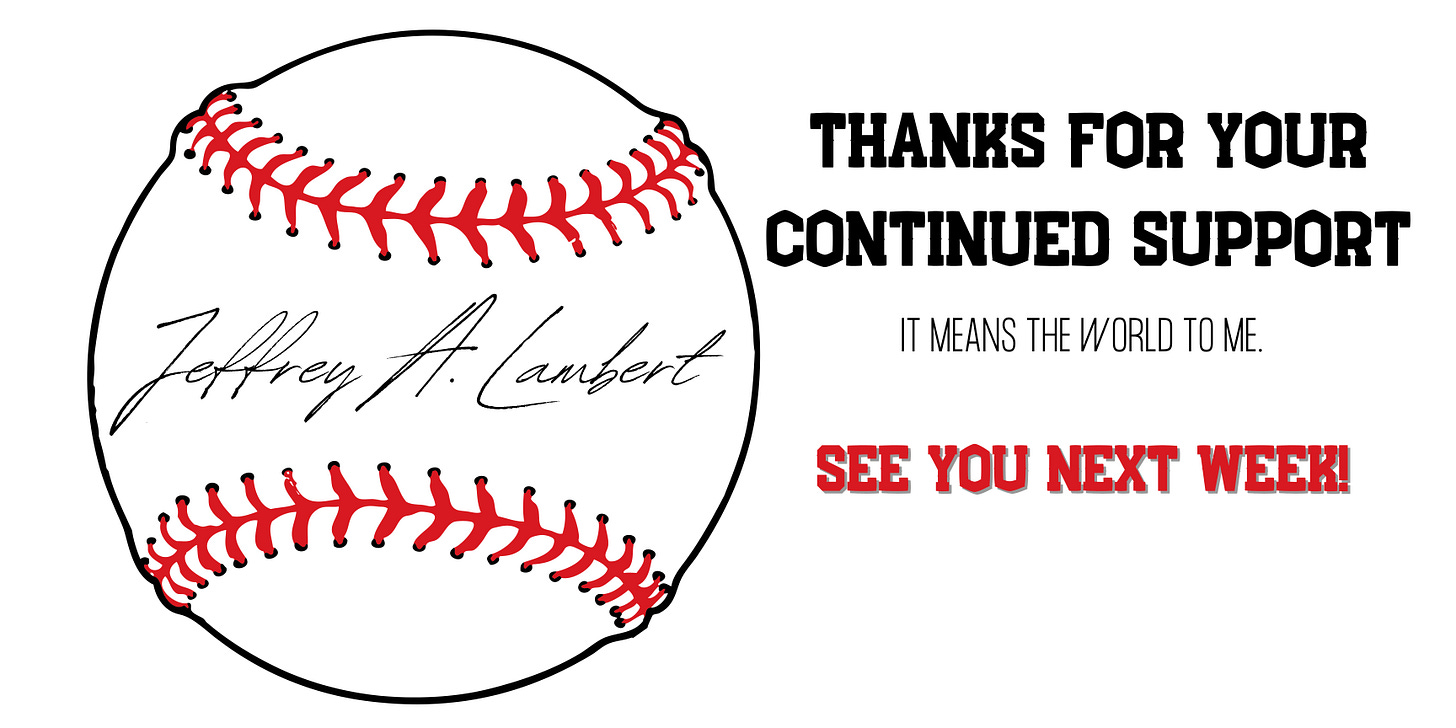

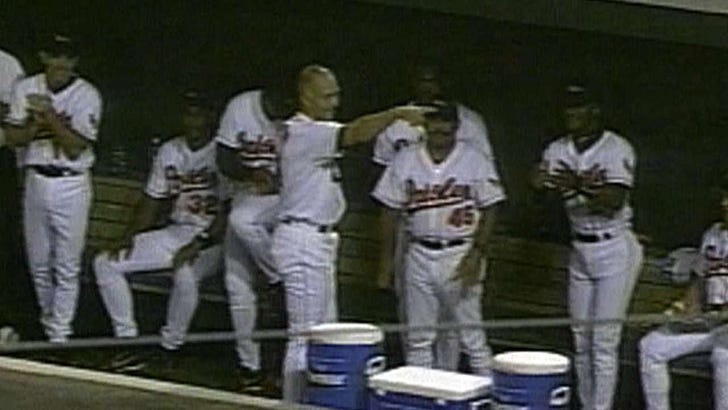


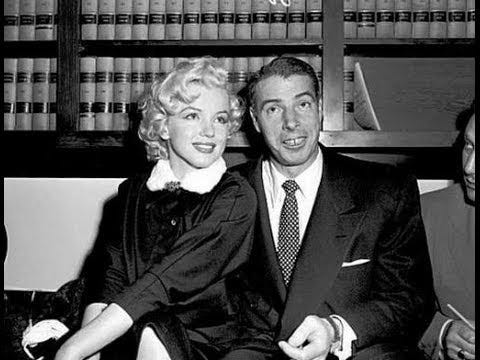
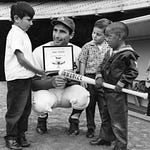

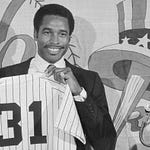
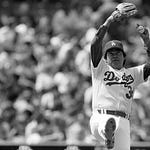
Share this post